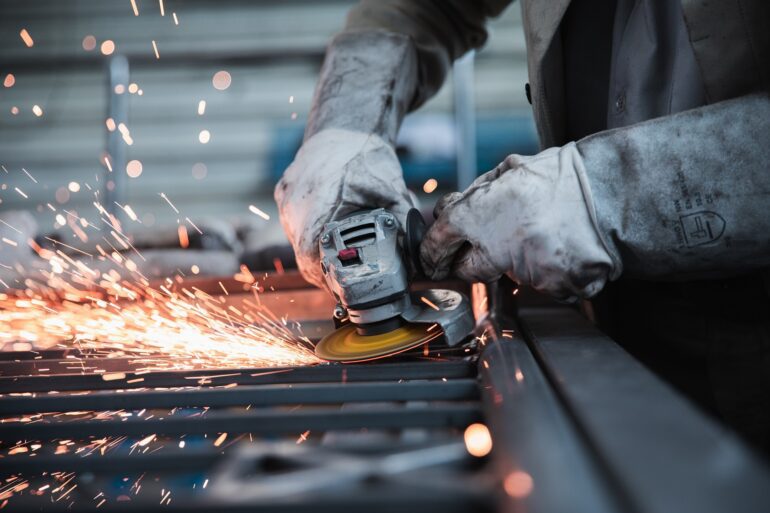TL;DR:
- Machine learning is driving efficiency and innovation in the manufacturing industry, playing a crucial role in the fourth industrial revolution.
- The global smart manufacturing market is projected to reach $658.4 billion by 2029, with artificial intelligence becoming an indispensable tool for meeting production demands, enhancing workforce productivity, and minimizing process losses.
- Machine learning empowers industrial robots to process data, identify patterns, and expedite work steps, improving operational efficiency.
- Predictive maintenance using machine learning algorithms reduces downtime and extends equipment lifespan by analyzing historical performance data and anticipating potential failures or maintenance needs.
- Machine learning algorithms revolutionize quality control by swiftly evaluating data from sensors, cameras, and monitoring devices, ensuring consistent product quality.
- Supply chain management benefits from machine learning with cognitive supply chain management, effective cargo routing, planning, and demand forecasting.
- Machine learning enables process optimization and automation by identifying areas for improvement and streamlining workflows.
- Risk management is enhanced through machine learning, identifying potential safety issues, estimating accident probabilities, and suggesting preventive measures.
Main AI News:
The transformative power of artificial intelligence (AI) in the manufacturing industry is undeniable. As we witness the dawn of the fourth industrial revolution, machine learning emerges as a driving force behind unprecedented efficiency and innovation. The global smart manufacturing market is set to skyrocket from $277.8 billion in 2022 to a staggering $658.4 billion by 2029, solidifying AI’s status as an indispensable tool for meeting production demands, enhancing workforce productivity and minimizing process losses.
At the heart of this digital transformation lies the cutting-edge technology of machine learning, empowering computer systems to learn from vast amounts of data and refine their capabilities without explicit programming. Through advanced algorithms and intricate statistical models, machine learning is revolutionizing various manufacturing processes, heralding a new era of optimization and productivity.
One notable application of machine learning lies in the realm of industrial robots. These intelligent machines possess the ability to process enormous datasets, recognize patterns, and draw intelligent conclusions. Consequently, they can effortlessly identify sources of error, thereby augmenting employee safety and expediting work steps, leading to significant improvements in operational efficiency.
Predictive maintenance stands out as another crucial domain where machine learning shines. Unplanned downtime and equipment failures can cause severe disruptions, impeding production speed and profitability. However, machine learning algorithms enable manufacturers to analyze historical performance data, detect patterns, and anticipate potential failures or maintenance needs. By doing so, they can proactively address issues, significantly reducing downtime and extending the lifespan of the equipment.
Moreover, machine learning has the potential to revolutionize quality control practices that have traditionally relied on laborious manual inspections prone to human error. By leveraging machine learning algorithms, manufacturers can swiftly evaluate data collected from an array of sensors, cameras, and monitoring devices. These algorithms can detect deviations from quality standards, alerting manufacturers to rectify problems early on and ensuring consistent product quality.
Supply chain management represents yet another domain greatly improved by machine learning. Manufacturers can introduce cognitive supply chain management, effectively overseeing stock levels, shipping, and production, thus ensuring seamless supply network operations. Machine learning enables efficient cargo routing and planning, resulting in reduced transportation costs and enhanced logistics. Additionally, machine learning aids in demand forecasting, empowering manufacturers to adjust their procurement, production, and distribution processes proactively.
Process optimization and automation also benefit tremendously from machine learning algorithms. By analyzing vast volumes of input data, these algorithms can identify areas for improvement, enabling manufacturers to evaluate production processes, streamline workflows, and boost overall operational efficiency. This optimization contributes to cost savings, increased productivity, and heightened competitiveness in the ever-evolving manufacturing landscape.
Lastly, safety remains a paramount concern in the manufacturing sector, and machine learning plays a pivotal role in risk management. By analyzing historical and real-time sensor data, machine learning algorithms can identify potential safety issues, estimate accident probabilities, and suggest preventive measures. This proactive approach promotes workplace safety and enhances the well-being of employees, ensuring a secure environment for all.
Conclusion:
The rise of AI in manufacturing is reshaping the industry as we know it. Machine learning has emerged as a transformative technology, enabling manufacturers to streamline processes, enhance productivity, and mitigate risks. With its wide-ranging applications in industrial robotics, predictive maintenance, quality control, supply chain management, process optimization, and safety, machine learning is spearheading a new era of efficiency and innovation in the manufacturing landscape. Embracing this technology is not just a choice but a necessity for businesses seeking to thrive in an increasingly competitive market.

